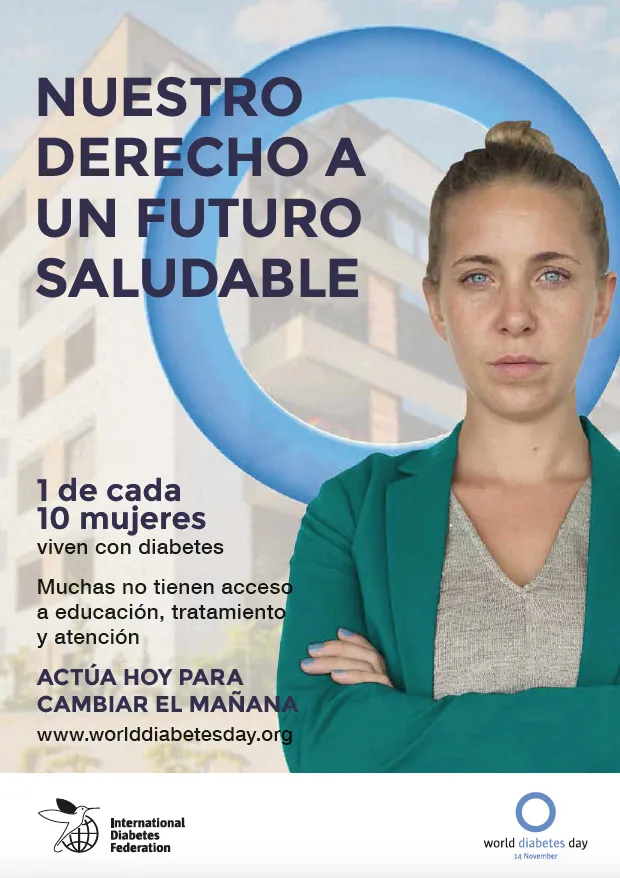November 14, World Diabetes Day
Women and Diabetes: "Our right to a healthy future"
The International Diabetes Federation (FID) has recently announced that World Diabetes Day 2017 will focus on "Women and Diabetes", with the slogan "our right to a healthy future."
At present, there are more than 199 million women living with diabetes, and it is estimated that this total will increase to 313 million by 2040. Gender roles and power dynamics influence vulnerability to diabetes, affect access toHealth services and women's health care behaviors intensify the effects of diabetes on women.
Diabetes is the ninth main cause of death among women worldwide, causing 2.1 million deaths every year.As a result of socioeconomic conditions, girls and women with diabetes face barriers in access to effective cost prevention, early detection, diagnosis, treatment and attention, especially in developing countries.
Socio -economic inequalities expose women to the main risk factors of diabetes, which include a poor diet and nutrition, physical inactivity, tobacco consumption and harmful consumption of alcohol.
Two out of five women with diabetes are in reproductive age, more than 60 million women worldwide.Women with diabetes have more difficulty conceiving and can have difficulties in their pregnancies.Without preconception planning, type 1 and type 2 diabetes can result in a significantly higher risk of mortality and morbidity, both maternal and childish.
Approximately one in seven births are affected by gestational diabetes (DMG), a serious and ignored threat to maternal and child health.
Many women with DMG suffer complications related to pregnancy, including high blood pressure, babies with a high birth weight and difficult births.An important number of women with DMG also develops type 2 diabetes, resulting in additional complications and health costs.
The stigmatization and discrimination facing people with diabetes are particularly pronounced in girls and women, which drag a double burden of discrimination, due to their state of health and the inequalities perpetrated in societies dominated by men.These inequalities can dissuade girls and women to seek a diagnosis and treatment, preventing positive health results.
Women and girls should be trained with knowledge and resources that reinforce their ability to prevent or delay the appearance of type 2 diabetes, and help influence the adoption of healthy lifestyles that improve the health and well -being of those to theiraround and future generations.
The 2017 World Diabetes Day campaign will promote the importance of affordable and equitable access to essential medicines and technologies, education for self -control and information that all women at risk or living with diabetes require so that they can achieve optimal results inYour diabetes, and reinforce your ability to prevent type 2 diabetes.
The International Diabetes Federation has announced that it will launch campaign materials from May and until September to help the Diabetes Community and other stakeholders in the preparation of World Diabetes Day, on November 14.At the moment he has published the posters that we show you below and has announced that he will soon spread his first infographics.






